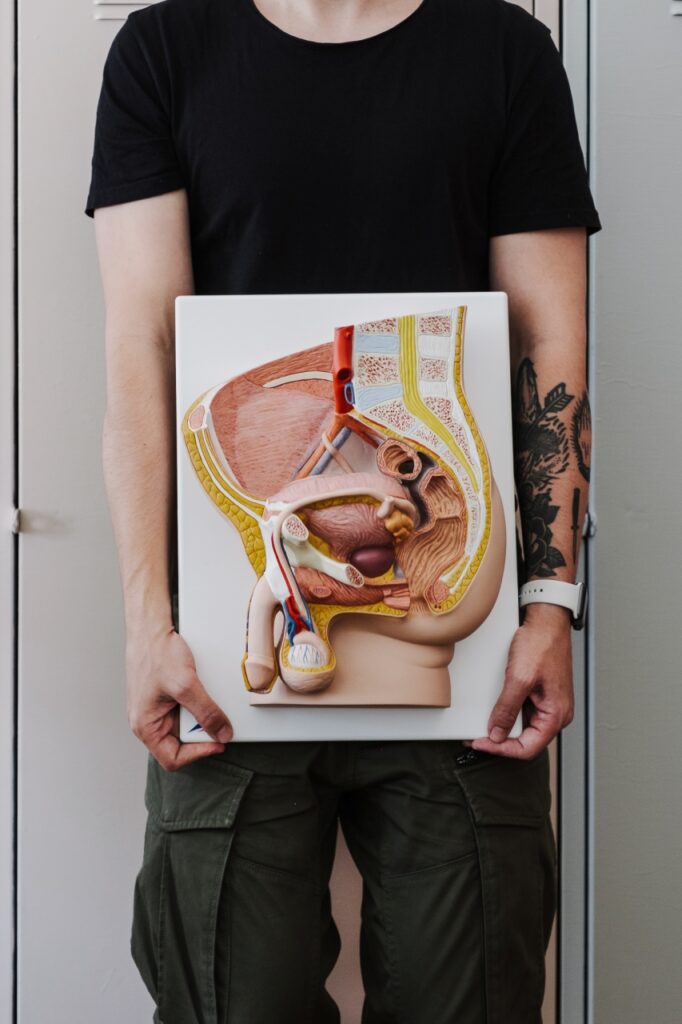Prostate cancer has long been asymptomatic. Preventive check-ups and screening are key. In the Czech Republic, around 8,000 men are diagnosed with prostate cancer each year, and around 1,400 of them die from it. The non-profit organisation Loono also focuses on prevention and risk factors for the disease as part of its men's health campaign.
"Although the number of prostate cancer diagnoses may sound scary, the positive side is that early detection before it starts to metastasize gives the patient a high chance of recovery. That's why prevention is absolutely essential," Says Kateřina Šédová, founder of the non-profit organization Loono. "The good news is that since January this year, a screening programme organised by the Ministry of Health of the Czech Republic has been in operation, targeting men aged 50 to 69," He adds.
Patients are screened both by their general practitioner and, for example, by their treating urologist who is monitoring them for other health problems. The examination consists of in the measurement of PSA levels (prostate-specific antigen), an enzyme that is necessary to liquefy semen after ejaculation, thereby ensuring normal sperm function. Under normal conditions, most of the PSA is secreted into the semen. Only a small portion enters the blood and is detectable. If the internal architecture of the prostate gland is disrupted, more of the PSA begins to enter the blood and causes elevated levels that are detectable through blood tests.
Thanks to this examination, prostate cancer was also detected in time in the case of Health Minister Vlastimil Válek, who, as he himself said, had not experienced any warning signs before.

Prostate cancer is usually long time without symptoms
Once they have manifested, symptoms may include difficulty urinating, such as difficulty initiating urination, a weak and intermittent stream, a feeling of incomplete voiding, urge to urinate or frequent urination day and night. Blood in the urine or ejaculate and swelling of the lower limbs may also occur. "It often happens that men overlook these manifestations or attribute them to age. But this can be very dangerous. We therefore recommend that you always see your GP or urologist and discuss these problems with them." Šédová explains.
The risk of prostate cancer increases significantly with age, after the age of 50. Other risk factors include a family history of this cancer, high intake of animal fats and red meat, smoking, or increased exposure to pesticides and heavy metals. The risk is also increased by the so-called 'cancer-causing factors'. BRCA gene mutations, which are particularly discussed in the context of breast cancer. However, it is also associated with other cancers, such as pancreatic, colorectal and melanoma, in addition to prostate and breast cancer.
So what should men do as a preventive measure? "Have a preventive check-up with your GP every two years and see a urologist after the age of 50. It is advisable to limit the consumption of red meat and animal fats and not to underestimate the role of a healthy lifestyle. Get regular exercise, eat a diet rich in vegetables and whole grains, and avoid smoking and alcohol consumption." Šédová replies.
Although prostate cancer affects thousands of men a year in the Czech Republic alone, it is still a taboo for many and not enough is said about it. This often leads men to downplay their health problems or put off seeing a doctor because of fear, shame or lack of information. "Our goal is to break this taboo and make men take responsibility for their health. Healthcare is so advanced today that early detection of this disease gives a high chance of successful treatment," adds Šédová.
Loono/ gnews - RoZ
PHOTO - Loono/ Radek Vebr, Petr Vagner



